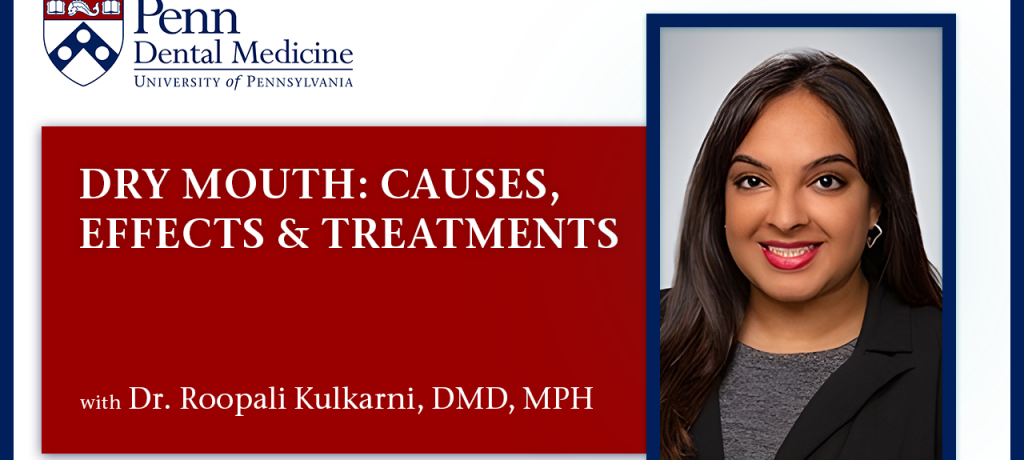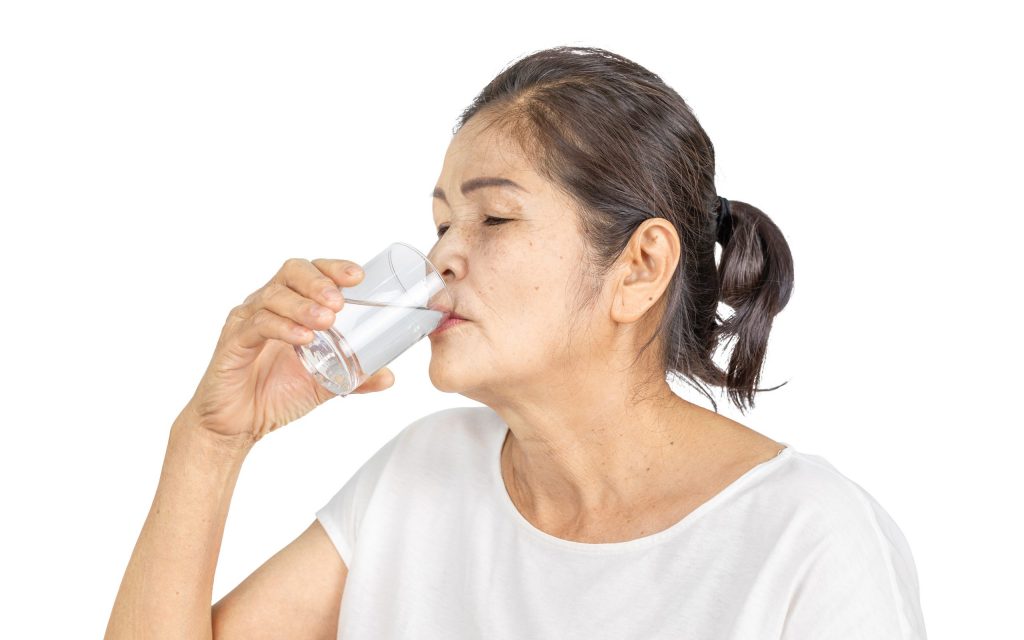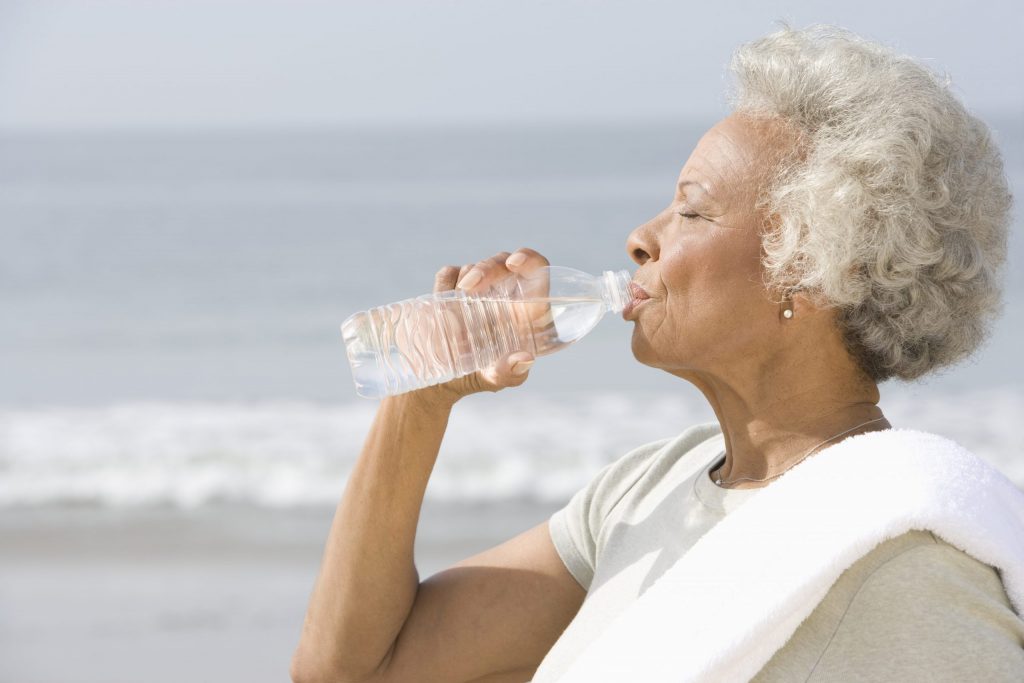Information Library
Start Reading

Does your mouth feel parched too much of the time, or like it’s burning?
Does your tongue feel sticky and thick, as though coated in cotton?
Does your throat feel scratchy and raw?
Do you wake up at night thirsting for a glass of water?
All these sensations can be symptoms of dry mouth, or xerostomia. Chronic dry mouth causes pain, discomfort, and distress for around one in four adults.
What causes dry mouth? How much can it hurt your oral health? What are the most effective treatments for dry mouth?
In the video above, Dr. Roopali Kulkarni, Assistant Professor of Oral Medicine at the University of Pennsylvania School of Dental Medicine, answers these and other questions about dry mouth that our patients at Penn Dental Medicine (PDM) ask.
Watch the video and read this edited transcript of Dr. Kulkarni’s answers to better understand what causes dry mouth and how to treat it.
Dry mouth is either the subjective feeling of dryness in the mouth or an objective measure of reduced saliva in the mouth.
What causes sudden dry mouth? The cause may be perfectly normal. For instance, feeling nervous can cause sudden dry mouth. Dehydration can also cause it. But a persistently dry mouth can be a sign of an underlying problem.
One of the most common causes of dry mouth is that it can be a side effect of medication use. It is also a common side effect of radiation therapy for cancer.
Additional causes of dry mouth can include:
If you’re experiencing dry mouth, it’s very important to mention it to your dentist.

Our saliva plays a crucial role in maintaining oral health. It helps wash away food particles, neutralize acids, and prevent bacteria from thriving in the mouth.
When we aren’t producing enough saliva, all these processes are compromised. Consequently, dry mouth can increase the risk of tooth decay, gum disease, and even developing thrush or yeast infections in the mouth.
Beyond the oral health issues, dry mouth can also cause discomfort and difficulty with speaking, chewing, swallowing, and even wearing dentures. In these ways, dry mouth can hurt not only your oral health but also your overall health and quality of life.
People tend to experience dry mouth at night. What causes dry mouth at night? Keeping your mouth open while you’re sleeping. Your mouth could be open due to snoring, mouth-breathing due to clogged or inflamed nasal passages, wearing a dental retainer or other orthodontic appliance, or using a CPAP machine to treat sleep apnea.
Dry mouth can also interrupt people’s sleep, so they feel as though they need to get up or perhaps have a drink of water.
One of my biggest recommendations is using a humidifier at night to help relieve some of those dry mouth symptoms.
 The No. 1 thing that can help is increasing water intake. Perhaps carry a water bottle with you throughout the day. You can keep sipping water to help relieve some of those dry mouth symptoms.
The No. 1 thing that can help is increasing water intake. Perhaps carry a water bottle with you throughout the day. You can keep sipping water to help relieve some of those dry mouth symptoms.
You can get a number of dry mouth products over the counter that can also relieve the symptoms. They could be dry mouth lozenges, dry mouth mouthwash, or even toothpaste.
It is important to see if products have a seal of approval. For example, the American Dental Association (ADA) has put its seal on Biotene Dry Mouth Oral Rinse because its tests show “the product is safe and has shown efficacy in temporarily relieving dry mouth symptoms, when used as directed.”

Depending upon what causes your dry mouth—whether it’s medications, whether it’s a medical condition—the symptoms can certainly be managed. I recommend letting your dentist know you’re experiencing dryness so they can determine the reason and help you manage it accordingly.
Dryness can be alleviated by drinking water or using different products, such as the Biotene Dry Mouth Oral Rinse mentioned earlier. But it can also be treated with certain medications. To know if you’re a candidate for those medications, it’s important to talk to your dentist.
If you don’t currently have a dentist, you can establish care with one. I recommend you choose one at Penn Dental Medicine.
If you’re looking for a provider experienced in safe and effective treatment for dry mouth, visit the experts at Penn Dental Medicine.
At PDM, we understand how frustrating and uncomfortable dry mouth can be. Our team can diagnose the underlying cause of your dry mouth and create a personalized treatment plan to alleviate your symptoms.
Don’t let dry mouth continue to disrupt your daily life. Schedule your appointment with us online now or call us at 215-898-8965.